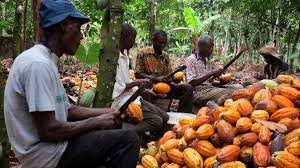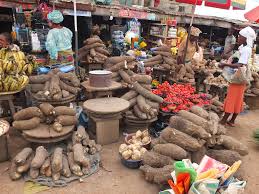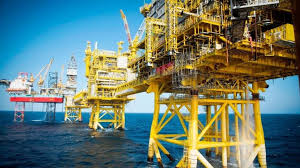Coffee importers in the EU are beginning to reduce their purchases from small farmers in Africa and other regions in anticipation of a historic EU regulation that would outlaw the sale of products connected to deforestation, which contributes to climate change.
According to industry insiders, the EU Deforestation Regulation (EUDR), which goes into effect in late 2024, would be costly and difficult to comply with, which meant it was already having unforeseen effects that would eventually change the structure of the world’s commodities markets.
Four mentioned a decline in coffee orders from Ethiopia in recent months, a country where coffee is a staple crop for about 5 million rural households. They cautioned that firms that implement sourcing strategies ahead of the law run the risk of making small-scale farmers even poorer and driving up prices for EU consumers, all while weakening the EUDR’s beneficial effects on forest preservation.
A representative of German roaster Dallmayr, which purchases around 1% of the world’s exported coffee, Johannes Dengler stated, “I see no way of buying significant quantities of Ethiopian coffee going forward.”
Even though the law’s implementing acts have not yet been approved, he stated that the beans he imports now must be EUDR-compliant because they may end up in coffee products marketed in the bloc in 2025.
Importers of goods like coffee, cocoa, soy, palm, cattle, lumber, rubber, and timber products are subject to severe fines under EUDR unless they can demonstrate that the materials did not come from deforested land.
Major coffee company JDE Peets warned that if it hasn’t “found and implemented a solution with them” by March, it may be compelled to remove some smaller producing nations from its supply chain.
The use of fossil fuels is the primary source of climate change, followed by deforestation.
The European Commission added that it has several programs in place to assist producing nations and smallholders in adhering to the EUDR, one of which was introduced at COP28 and involves a guarantee of 70 million euros ($76 million) from the EU and its member states.
It further stated that some smallholders view the EUDR as a chance to meet the growing demand for sustainably sourced goods worldwide, particularly if EU support measures are included.
Observation and monitoring
Companies are required by the EUDR to digitally trace their supply chains down to the plot where the raw ingredients were cultivated. This could mean locating millions of small farms in isolated areas.
Additionally, because businesses frequently do not deal directly with farmers, they may be depending in part on data supplied by some local middlemen, some of whom they may not even know or trust.
Mapping can be challenging in some developing nations due to spotty internet service, and traders and industry experts claim that conflicts over property rights, lax law enforcement, and clan warfare can make it risky to even look up information on farm ownership.
In a recent webinar hosted by the World Coffee Alliance, a representative from Ethiopia’s Oromia Coffee Farmers’ Cooperatives Union stated, “No one from Europe is interested in our coffee anymore.”
He claimed that even educated villages would find it difficult to gather the necessary data in time and that the majority of Ethiopian coffee farmers are unaware of the EUDR.
Ethiopia’s overall export revenue is derived from 30–35% coffee, of which nearly 25% is sold to the EU.
“Roasters are relocating to wealthy, large Brazilian farms. It’s quite startling,” a dealer at one major coffee trade remarked.
“In risky countries, there are smallholders and middlemen who are illiterate, and we’re coming to them with a law that even Europeans don’t understand.”
PARTITIONED SUPPLY CHAINS
However, if they are significant producers of commodities, eliminating small-scale farmers or entire nations will not be possible.
For instance, around 70% of the world’s cocoa is produced in Ivory Coast and Ghana, whereas Brazil and Vietnam produce 60% of the world’s coffee. Nearly 90% of the palm oil used in everything from pizza and lipstick to biofuels is grown in Indonesia and Malaysia.
Therefore, some large corporations claim that despite supplying complying items to the EU, they will divert raw materials from those nations that they cannot safely trace to non-EU markets.
One of the biggest palm oil producers in the world, Golden Agri Resources, told reporters that “segregated supply chains will be required” to execute the EUDR.
Since raw materials would still be farmed on deforested land—just not for EU consumption—this strategy would, to the degree that it becomes dominant, lessen the impact of the EUDR on forest conservation.
Food prices in the EU’s 27 member states are predicted to rise in the meantime due to compliance costs throughout the supply chain.
A source at a commodities trade major claims that Sucafina and Louis Dreyfus Company (LDC), two of the biggest coffee merchants in the world, have already locked up future sales contracts that contain an EUDR premium.
Sucafina and LDC declined to comment.
The EUDR is not anticipated to cause food inflation, according to the European Commission. For instance, the expense of traceability was mentioned, but it is expected that this will be compensated for as the rule should decrease the quantity of middlemen in the market.
PRESERVING FORESTS?
In significant cocoa-producing nations, EUDR poses a unique difficulty.
For instance, it is challenging to track down the local middlemen who sell half of the Ivory Coast’s crop. Grown primarily for EU consumption, it cannot be fully diverted to Asia because chocolate is not as well-liked there.
Reduced purchases from middlemen provide another challenge, according to traders, not the least of which is the need by Ivorian authorities to acquire 20% of their beans from this local supply chain.
This is where the government steps in. They need to ensure that supply, but they’re not doing so,” stated the global head of cocoa at a major international trading firm for agricultural commodities.
The issue facing Ivory Coast is that approximately one million people grow 20–30% of the country’s cocoa in protected forests. Removing them would be impossible without significant finance and support, and denying them their livelihood would likely spark societal upheaval.
According to insiders, Abidjan is therefore thinking about reclassifying its protected forests, which prompted the EU to officially urge the nation to stop.
“Where do you relocate the community, with what resources?” stated Renske Aarnoudse, senior project manager at the nonprofit IDH for cocoa and forests.
She stated that the EU ought to approve an Ivorian proposal to reclassify some areas where there is already significant forest degradation as agricultural land.
“These areas are virtually zero forest by now, and would probably benefit most from conversion to smallholder-owned agroforestry holdings,” Aarnoudse stated.





















